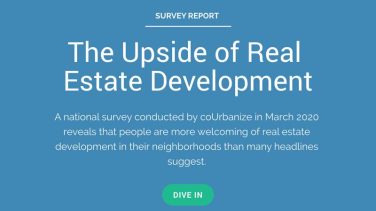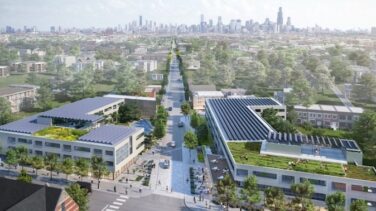Community engagement isn’t easy. Sometimes, conversations at public meetings are positive, centering around hopes of driving economic opportunity or making housing more equitable. Other times, they are tense, harboring on rising housing costs or displacement. The fear of NIMBYism often discourages real estate developers from embracing the community engagement process, yet failing to engage the community and consider their wants and needs undermines the voices of the neighborhood and therefore undermines the entire process.

Fostering constructive relationships between communities and developers is an essential step toward improving our communities and making the decision-making process more equitable and sustainable. Community engagement should be a dialogue where communities and real estate teams come together to thoughtfully consider how a community can grow, yet traditional approaches alone are both ineffective and non-inclusive, and they often fail to consider the intricacies of a given project.
Political and ethical considerations aside, residents of a community offer something to the conversation that no planner or developer can: lived experiences and knowledge that cannot be satisfied by outside experts, resulting in more neighborhood-specific placemaking and a sense of ownership of outcomes that make the process more sustainable.
When done well, community engagement can lead to improved outcomes. The goal of community outreach shouldn’t just be to gain support and get approval. The process should also be about designing and developing a project that will have long lasting, positive impacts on the community. By welcoming participation, decision makers can better understand what the community needs and shape plans accordingly. Structuring public outreach around these goals helps build trust with the community because their voices are heard and recognized. Asking specific questions allows community members to provide feedback regarding areas of the project they can meaningfully influence: What type of retail or restaurant would you like to see in this space? What would you like to see in the dedicated open space? Some community members won’t know what type of feedback to share, so providing some direction allows community members to contribute in a meaningful way and the development team to receive comments that can help shape the project. This feedback loop is valuable for both communities and developers.
When project teams listen to community input, respond to that feedback, and then iterate plans based on that feedback, community members feel like they’ve been heard and have added value, so they’re more likely to engage again.
– The coUrbanize Marketing Team


